LGBT+ Education in School - Having Effective Conversations with Parents
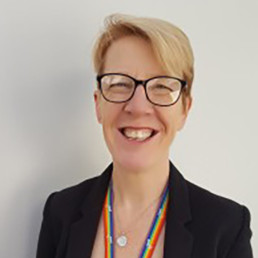
Written by Mel Lane
Mel Lane (she/her) is Head of Education at Pop’n’Olly. She has been a primary school teacher and teacher trainer for nearly 30 years and worked in schools on LGBT+ inclusion policies with thousands of children and school staff. Mel is a co- author of What Does LGBT+ Mean? (Pop’n’Olly, 2021).
When it comes to LGBT+ education in school, parents are often portrayed in the mainstream media as unsupportive and battling with teachers – but the reality is completely different. 82% of parents actively want their children to be taught about diverse families, including those with same-sex relationships. Having worked with over 10,000 children, I have experienced, time and time again, that parents are almost always supportive of LGBT+ inclusion work in school.
However, there are of course still a minority of parents who struggle with, and have concerns, about LGBT+ education. This is why empowering schools and teachers to have effective conversations is important. But how do we do this? Here are some themes that you may wish to include in these discussions:
Ethos and Values
Chances are you already promote equality and celebrate difference in your school. Maybe it’s in your school mission statement? e.g.
‘Brave, unique, caring and kind’
‘Hope, community, respect, love’
‘Respect for each other, Respect for our school, Respect for learning’
LGBT+ isn’t an add-on, it’s part of this whole-school approach. So when having conversations with parents, it’s vital you keep coming back to your whole-school ethos and discuss how LGBT+ education is a part of this.
Children’s Mental Health
We know that children learn better when they feel relaxed and able to be themselves. One teacher was so pleased to share with me how much more animated and engaged a Year 1 child had become after a session on families included two Mums, just like her family. All children benefit from conversations about LGBT+ inclusion because when we celebrate diversity we send a message to everyone that they are welcome in school whatever their uniqueness looks like.
Knowledge and Understanding
63% of 8-15 year olds know someone close to them who is LGBT+ Children are already having conversations about LGBT+ lives and some of them are searching for information online. School is a safe place where children can ask questions of trusted adults to find out reliable, accurate information. UK children all live in a country where being LGBT+ is protected by law and we shouldn’t hide this information from students. In fact, under the United Nations Convention on the Rights of the Child (UNCRC), all children have a right to this information.
Legal Obligations
Helping young people understand and develop positive relationships with people who are different from them is part of UK law and included in the Relationships and Sex Education (RSE) Guidance for Schools
The Public Sector Equality Duty (Section 149 of the Equality Act, 2010) states that schools must have due regard to “the need to eliminate discrimination, advance equality of opportunity, and foster good relations between persons who share a relevant protected characteristic and persons who do not share it.”
Ofsted guidance also states that, “Schools can choose to teach the beliefs of any faith on the protected characteristics. They may explain that same-sex relationships and gender reassignment are not permitted by a particular religion. However, if they do so, they must also explain the legal rights of LGBT people under UK law, and that this and LGBT people must be respected”
Supporting Parents
Sometimes parents worry that life will be harder for their child if they are LGBT+. Sometimes they’re worried about being judged by other parents. Schools often have a lot more experience supporting LGBT+ young people than parents do. A parent of a trans child told me how much better they felt that their child’s school was supportive of their child’s transition – it gave the parent confidence and helped them navigate a completely new and sometimes challenging time.
Conversations with parents almost always eliminate fears, tackle misconceptions and build better relationships. You can find out much more information on how to have these conversations in Pop’n’Olly’s ‘Discussions With Parents’ document.
How Do We Make Our Classrooms Feel Like Home to Each and Every Student
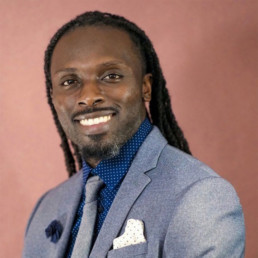
Written by Kwame Sarfo-Mensah
Kwame Sarfo-Mensah holds a Bachelor’s degree in Mathematics and a Master’s Degree in Elementary Education from Temple University. For nine years, he served as a middle school math teacher in Philadelphia, PA and Boston, MA. Currently, he is the founder of Identity Talk Consulting, a global educational consulting firm. Throughout his 17-year career as a classroom teacher, author, and consultant, Kwame has earned numerous accolades for this work. His newest book, "Learning to Relearn: Supporting Identity in a Culturally Affirming Classroom", will be coming out Fall 2024.
For context, I’m a first generation Ghanaian American who has spent all but three years of my life living outside of Ghana. While I mostly understand my family’s home language, Twi, I grew up not really being taught the language by my parents. We learned a few Twi words here and there but English was the main medium of communication in our household and every other environment we found ourselves in. Growing up in the United States, I felt like an outsider. I thought those feelings would change when I moved to Ghana at 12 years old and lived there for 3 years. Even while living there, I felt like an outsider.
I’ve never been a clean fit in any of my worlds. I’ve always been different. My whole life has been spent living outside the margins of the dominant culture. In more ways than one, I’ve received harmful messages and mistreatment to remind me of that reality. The following traumatic scenario, which I’ve played out in my mind for the last 10 years, is a prime example of this predicament.
Okay, let me set the stage…
Imagine yourself on an airplane that is heading to the Kotoka International Airport. As the plane makes its descent towards the airport, your anxiety heightens because you know the course of events that are about to follow. The minute you get off the plane, you know you’ll have to go straight to the immigration booth, which means that you’ll have to hand over your American passport to a Ghanaian immigration officer for visa inspection. By all means, what I’ve mentioned thus far is standard protocol but this is where things take a left turn. So you hand your American passport over to the immigration officer, he turns to your bio page and discovers your name, “Kwame Karikari Sarfo-Mensah”. For a brief moment, the officer looks at you and then looks back at your passport. At this moment, you have two options for a response. You can either…
- respond to the officer in English, leaving yourself subject to questioning from the officer as to why you have this strong Ghanaian name and are not speaking to them in Twi.
- respond to the officer in Twi, leaving yourself subject to ridicule and harsh criticism as to how you could be Ghanaian and not be able to speak Twi fluently.
Unsure of how to respond, you freeze in panic because you know what’s about to happen next. The officer will either call you an oburoni and crack jokes about you with their co-workers nearby or look at you in disgust and shame you for not being able to speak Twi fluently.
While this story is specific to my experience, I can assure you that others who grew up as third culture kids or immigrant students have dealt with a similar scenario to the one I just described. Whether you teach abroad in an international school or in a K-12 school within the United States, chances are you’ll have a few students within your classrooms who are struggling to make sense of their identities or searching for spaces where they are welcomed, accepted, and fully embraced for who they are. A space where no one is interrogating them or invalidating their lived experience.
These students I’m referring to are your multilingual students, students with IEPs and 504 plans, immigrant and migrant students, neurodiverse students, students who are disabled, students who practice non-Christian faiths, students who are BIPOC, students who are LGBTQ+, etc. Although they may enter your classroom with vastly different lived experiences, they are two things they all have in common:
- They find themselves outside the margins of white dominant culture.
- They all deserve to be in a classroom that feels like HOME.
Understanding that every student defines home differently, how can we make our classrooms feel like home for each and every student? We can start by thinking about our own homes. When you’re in our homes, we’re in spaces where……
- we feel a sense of psychological and emotional safety and comfort
- we can express ourselves unapologetically
- we receive support and care from loved ones
- we belong and feel welcomed,valued and accepted
- we thrive off of routine and stability
- we’re connecting intimately with our loved ones
- cherished memories and family history are held near and dear to our hearts
Regardless of who we are and where we come from, we all want to experience that feeling of home as I’ve described above. We deserve that feeling because it’s a human right, as recognized by the United Nations. In this world where government officials across the globe are shutting down DEI programs, censoring and banning culturally responsive and identity-affirming curriculum in schools, and pushing anti-LGBTQ+ legislation, it is more imperative than ever for us, as educators, to create classroom spaces of inclusion and belonging that feel like home for our most vulnerable students.
We may not be able to solve all the world’s problems but there are a few key things we can do to make our students feel comfortable in our classrooms:
- Pronouncing student names correctly
- Using correct gender pronouns for students
- Incorporating translanguaging practices in our daily instruction
- Adopting a restorative approach to discipline and relationship building
- Understanding that social emotional learning must be done with an antibias, antiracist (ABAR) lens.
- Planning lessons and employing instructional techniques that account for the learning styles of neurodiverse learners.
- Making our classrooms more accessible to students with physical disabilities
In the end, no student should ever feel the way I felt during my childhood. By making our classrooms feel like home for our students, we’re committing ourselves to normalizing and embracing the beauty of difference, as informed by the intersectional nature of our respective identities. And finally, we’re committing ourselves to building learning spaces where joy, love, and acceptance are living parts of our classroom culture.
The Hypocrisy at the Heart of Racist Riots
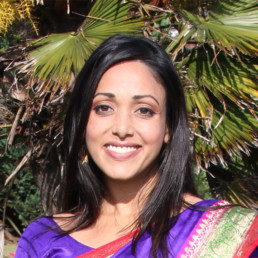
Written by Dr Nilufar Ahmed
Dr Nilufar Ahmed is a multi award winning Chartered Psychologist, Academic, and Accredited Psychotherapist. She works as an academic at the University of Bristol where her research and pedagogy focus on Inclusion and Engagement. Her work is situated in an antiracist and Intersectional framework. She is regularly invited to comment in the media on all things psychology and has delivered training, keynotes, and consultancy services across sectors including HE, business, and Government.
Originally published by The Conversation on 9/8/24
When news broke that a 17-year-old male had stabbed a number of young girls in Southport, misinformation swiftly followed. First, that the perpetrator was an asylum seeker or refugee who had come to the UK on a boat. This was discredited and information emerged that the individual was British-born. But the circulation of disinformation, including a fake, Arab-sounding name, led many to argue it must have been a Muslim male.
Though the perpetrator has no known links to Islam, violent, far-right rioters still mobilised to attack mosques. Islamophobic violence spilled onto the streets in the worst race riots Britain has seen in years.
The fact that this misinformation was so readily believed can be partly explained by psychology, and how we think about people who look like us, and about others who don’t.
People are conditioned to identify with their in-group – others who are like them on a range of markers such as race, gender, class or nationality. The maintenance of this shared identity largely requires “us” to be different (meaning better) than “them” by making negative inferences about them.
This automatic psychological response explains how people can see the self and the in-group as complex and fluid (for example, not all white people are criminals) but frame the out-group as homogeneous and fixed. This can lead, as we’ve seen, to some people casting all black men as dangerous, Muslims as terrorists, asylum seekers as opportunistic and refugees as “taking” jobs and healthcare resources, justifying the dislike and even hatred of the out-group.
The racism of this public reaction to a horrific attack on children is stark when you compare it to other recent events.
When a white male killed a 14-year-old black boy named Daniel Anjorin with a sword in May, protesters did not mobilise around the country to “protect children”. Neither were white men as a group deemed a threat to the safety of children.
Whenever crimes, however heinous, are committed by white perpetrators, they are more often viewed as the acts of an individual who was at fault because of mental health issues or falling in with the wrong crowd. There is a long history of disparate treatment of criminals in the media linked to race.
People are socially conditioned to think heinous acts are committed by outsiders. There are a number of cognitive biases at play here, including contextual bias, where decisions are influenced by background information rather than the crime itself, and affinity bias, where people prefer others who are like them.
These biases are present in individual cases, but also across the judicial system. Inequalities in sentencing perpetuate the narrative that people of colour are more dangerous and disposed to crime.
A study commissioned by the Crown Prosecution Service also found that people of colour are significantly more likely to be prosecuted than white people for the same crimes. Such inequity results in overrepresentation in prisons and with convictions. This then feeds the narrative that people of colour are more likely to commit crime – when in fact they are simply more likely to be prosecuted.
The Blame Game
In times of scarcity, this in-group/out-group bias can become simplified and exacerbated to justify withholding resources from the out-group, who the in-group perceives as “undeserving”. Out-group scapegoats offer an easy and reliable way of deflecting responsibility by those with power.
This is what has happened over the past 14 years in Britain. While the Conservative government created an unstable economic climate and deep poverty through cuts to public services and economic turmoil, it is politically convenient to suggest the reason for scarce resources is a small number of asylum seekers.
The previous government used the negative attitudes towards refugees and immigrants as a core pillar of its election campaign. Politicians used increasingly inflammatory language in relation to immigration, blaming immigrants for things like the housing crisis and depleted health resources as a way shifting attention from their cuts in spending.
Anti-racist counter-protests have organised all around the country. Simon Dack News/Alamy
Over time, the scapegoats have been boiled down to one homogenised group of people who are not white. This is apparent in the differential treatment of asylum seekers from Ukraine, who were welcomed to the UK and allowed to work and be housed.
Asylum seekers from the rest of the world are not allowed to work on arrival and receive just £49.18 a week. This feeds the narrative that white people work, while people of colour don’t (though somehow are simultaneously “taking our jobs”).
The relentless scapegoating dovetails with the psychological biases we are all socially conditioned to fall for, creating an “us” and “them” environment that can easily turn violent. The events of the past two weeks have awakened much of Britain to the consequences that can arise when society is defined this way.
The UK Race Riots, Summer 2024 - The Aftermath

Written by DiverseEd
Diverse Educators started as a grassroots network in 2018 to create a space for a coherent and cohesive conversation about DEI. We have evolved into a training provider and event organiser for all things DEI.
It has been a difficult summer for many people across the UK as hate has manifested itself online and on the streets of our country.
The loss of innocent lives have been used as an excuse to riot, with those enacting civil disorder and violence under the cover of protesting and the right to freedom of speech.
Protests quickly became riots. Riots escalated into acts of terrorism.
And let’s not forget that the spate of racist, islamophobic, anti-migrant incidents took place during South Asian Heritage Month.
Many pupils, educators and parents/ carers will be returning to school in the coming weeks scared and traumatised by what has happened, by what they have experienced and by what they have witnessed. There will also be a number of these groups who are also emboldened in their attitudes, beliefs and behaviours. So, how do we challenge this?
Some questions for us to reflect on and to discuss as part of our DEIB strategic approach:
- How prepared are we to create safety, to offer support, to protect our communities?
- How will we take an anti-racist stand as a profession, as organisations and as leaders?
- How will we review all aspects of school life moving forwards through an intersectional lens?
- How will we ensure our approach to supporting our school communities is trauma-informed?
- What training have your different stakeholders had, and what further training and support do they need?
- How are we supporting the wellbeing of your DEIB leader/ working party as they manage the emotional tax of doing the necessary work that is likely to be triggering for their own lived experience?
- Do we have staff briefings ready and are assemblies, tutor activities and PSHE lessons prepared?
It is important to ensure that these questions move from being words to become actions.
In our work at #DiverseEd we encourage people to consider how we are developing consciousness, confidence and competence in ourselves and others. We also encourage our network to look in the mirror before we look out of the window – we need to do the inner work alongside the outer work to make sure what we do is authentic, considered and not performative.
We appreciate that:
- There is a lot to process.
- There is a lot to do.
- There is a lot of overwhelm.
We need to learn the lessons from the Anti Racism work schools jumped to in the aftermath of George Floyd’s murder – it is important for us to take action but it is more important to think about what needs to be done in different school contexts. How do the incidents this summer feed into our ongoing DEIB work? How do we commit to proactivity instead of reactivity?
Let’s learn from the mistakes made in the aftermath of George Floyd’s death. Let’s not be silent, but let’s consider who is doing the talking and presenting to each stakeholder group. Let’s be mindful of who we have consulted, which voices have been listened to to frame the message and how it is delivered and how it lands.
Let’s also consider how we are working with our local community. What does a connected community look and feel like for all community members? How are we building bridges, creating safe spaces, carving out opportunities to listen and nurturing collaborative partnerships?
Below we have collated resources and we signpost support that has been shared by our network to help navigate the next few weeks as we return to school.
As an anti-racist school leader we can show our support by undertaking the following key reading and actions to get started:
- Dr Nilufar Ahmed – read and share this article exploring the hypocrisy at the heart of racist riots.
- Sir (Mufti) Hamid Patel – read and share this article considering After the riots: The role of schools in healing our communities
- Professor Paul Miller – watch and share this video summary of the race riots.
- SARI – read and share this guidance on how to respond to hate crimes.
- Jeffrey Boakye – read and sign the Open Letter re Safeguarding and Child Protection
- Hope Not Hate – send a copy of the HNH letter to your local MP
- BAMEED – read and share their curated toolkit of anti-racism resources for schools.
Some free training events as term starts which you may wish to attend/ share with colleagues:
- Facing History – attend and share this free webinar on Supporting Teachers to Respond to the Summer’s Civil Unrest on 28/8.
- APEX Educate – attend and share this free webinar on Reckoning with the riots – Addressing the aftermath in schools on 9/9.
- Still I Rise – attend and share these free sessions with Orla McKeating with guest contributor Baisat Alwiye
Some organisational statements in response to the riots to read and consider your own public messaging as an organisation:
- Association of Colleges
- CCT
- Fair Education Alliance
- Liberal Democrats
- Mayor of London
- Teach First
- The Big Issue
- Women’s Aid
Some thought-provoking posts by individuals in response to the riots to read, reflect on and discuss with colleagues:
- Chanel Noel – signposting to further support
- Christina Brooks – some tips on small acts we can all make to support others
- Gulwali Passarlay – sharing the fear they are experiencing
- Hannah Naima McCloskey – a post exploring how events are labelled and framed
- Dr Matt Jacobs – on white allyship and creating safe space
- Naomi Wilcox-Lee – sharing resources on inclusive language
- Pete Olusoga – a blog exploring the media portrayal of the riots
- Rachel Carrell – sharing tips on how to talk to children about the riots
Some next steps to consider getting involved in:
- Teaching Working Party and Curriculum Review
- Whilst not forgetting the brilliant work that The Black Curriculum have been doing for the last 5 years.
Some further resources to review and share:
- PSHE Association – Belonging and community: addressing discrimination and extremism
- Spark and Co – Standing Together Against Racist Violence: Support for Communities of Colour in the UK
Some further reading to read and discuss with colleagues:
- Dawn Butler – There’s a huge difference between free speech and hate speech
- Nafeez Ahmed – Exposing the Real UK Race Riot Instigators: The Key Players and Transatlantic Network Around Tommy Robinson
- Torsten Bell – Despite appearances, Britons are more tolerant than ever
- Zahra Sultana – ‘People Aren’t Going To Forget What’s Been Said, And How They’ve Been Made To Feel’
Some final resources and supports from us at Diverse Educators:
- Our DEIB toolkits including one on Anti-Racism
- Our thematic DEIB training sessions including one on Anti-Racism
- Our DEIB Directory with a list of organisations who can support you in unpacking race and religion/ belief in your context.
- Our free virtual event on September 21st on Building a Global Majority Workforce and Pipeline.
Heart Stories and Community
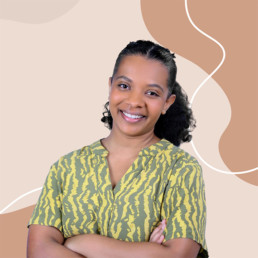
Written by Samira Vance
Diversity, Equity and Inclusion Leader and Consultant. Founder of the Thailand DEI Hub.
As I journey into the next chapter of my life and career, I am finding myself taking stock and feeling gratitude for many things. As I intentionally work to engineer this next phase, I want to share one aspect that I have come to realise is essential to build and find. A community of ‘my people’.
To clarify, by ‘my people’ I don’t necessarily mean BIPOC folx but rather individuals and groups that endow me with a sense of true belonging. The people with whom you truly and fully unmask and allow space for them to do the same. At the start of this year, I attended two incredible conferences (AIELOC and DEIx24) and I was overwhelmed at the power of community. I have since set up the Thailand DEI Hub to provide a similar sense of community and peer support after being inspired by both conferences. Whilst I have found ‘my people’ along my professional journey, it was positively overwhelming to be around so many that could potentially be ‘my people’ all in one place. It is a great thing to find, witness and be amongst the souls that nourish one another.
One of the things that was consistent was the level of vulnerability shown by attendees. At DEIx24, Margaret Park asked us to consider what constitutes a safe place. Is a statement to that effect all that is needed for the feeling of safety to be felt by participants? Many of us have felt the disconnect between being told that it is a safe place when our body and gut tell us otherwise. Yet, in these instances with strangers, online ‘friends/connections’ and acquaintances, the level of vulnerability very clearly indicated the sense of safety felt by many.
A fellow attendee, spoke of wanting to connect people with ‘similar heart stories’. Heart stories. The phrase stuck with me. After some pondering, I have decided that heart stories are those defining, poignant stories of our lives. The ones that make us who we are and the ones that describe our journey through life. Are they what bind us? Do heart stories recognise each other? Indeed hearing my stories and those of my loved ones spoken back to me without my uttering a single word made me feel heard. Seeing the raw emotions through vulnerability that mirrored my own, moved me to connect. I recognised the heart story because it was similar to my own. The snapping of the fingers, the head nods and the ‘Mmms’ told me that the speaker and I were not alone. Those moments, conversations and experiences moved me to make space in my life for these strangers. We could speak truth to our stories where we were understood.
It was a metaphorical embrace signalling understanding, joy, sadness, a spectrum of emotions all at once but most of all, safety in being able to share those emotions with others. It said:
I see you, even as you hide
I hear you, even though you haven’t spoken
I know you, although we’ve never met
I am you, or at least that what my heart thinks
I feel your heart story
At AIELOC, another workshop leader spoke about safe spaces in relation to indigenous practices, specifically that of the Muscogee (Creek) Nation and roles of different members of the tribe. As BIPOC folx, but other minoritised groups too, spread across the globe, are we all yearning for places where we belong?
So many of us work to create equitable and inclusive spaces with the aim of fostering belonging, but what is the cost of existing in spaces not designed for us at this moment? What is the cost of continuing to mask day in, day out? I am very fortunate in that I have been able to find the people in my professional life with whom I can exist as my authentic self but the reality remains that for minoritised groups, this is consistently not the case outside of these relationships and spaces. Whilst we are working on systemic change, it is vital that we find our communities and safe spaces.
As I move back to England (my home), I do so with the recognition that I am a member of both visible and non-visible minority groups. I think about the communities, ‘tribe members’ and safe spaces that I will need in personal and professional settings to both support my mental health and allow me to sustainably carry on with the work that I do.
If you know of any amazing communities in the South East of England or ones based online for black women, mixed-race women, people of south-asian heritage, neurodivergent people/parents, parents of black children, DEI professionals and/or not-so-fit basketballers please do share and connect with me if you’d like! The word underpinning my vision board this year was ‘nourish’ and I can absolutely see the power of communities and people to provide spiritual, mental and sometimes intellectual nourishment and strength.
Diary of a Dyslexic Teacher
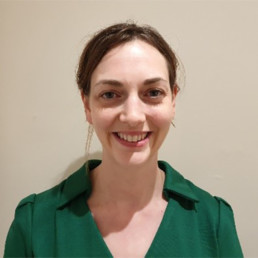
Written by Liz Boyer
Liz Boyer has dedicated 21 years to education, she specialises in EYFS and KS1. Liz has taught across phases in both the Independent and State sectors, most recently in inner-city schools that are wonderfully diverse in nature. Liz has held various school leadership roles and has devotedly mentored ITT/E students for 15 years. In 2021, she became a SCITT Tutor, and currently serves as Primary Lead for Bluecoat SCITT Alliance BSA. Starting in September 2024, Liz will begin her role as a Senior Lecturer at the University of Derby UoD, continuing her commitment to fostering excellence in education and developing the next generation of teachers. Liz is also dyslexic but doesn’t wish that to define her.
In 2021, I wrote a diary during a 10-day COVID isolation. Fast forward to today I am a Primary SCITT Lead at Bluecoat SCITT Alliance BSA within the Archway Learning Trust ALT. Here, I have the honour of collaborating with an array of exceptional trainee teachers, each with their own unique experiences. Some of these trainees have encountered the challenges associated with neurodiversity, and it is a privilege to support them as we navigate the dynamic landscape of teaching together. I firmly believe that every individual has valuable contributions to make, and I am committed to working with both trainees and educational institutions to ensure that everyone’s strengths are recognised and celebrated. Some schools actively champion colleagues of all backgrounds, while others are striving to achieve this inclusive environment. My primary support in this endeavour is Diverse Educators DE, an organisation that not only shapes policy but also guides schools as we navigate the era of inclusivity.
2021 Highlights
Day 1: Introduction
I am Liz Boyer, an educator with 18 years’ experience, whilst I have had many senior school roles I identify first and foremost as a teacher. What sets me apart from some others (although 20% of the population are with me) is my dyslexia, a facet of my professional life I typically do not emphasise however, I am not saying it should be hidden. Today, I aim to share insights, coping strategies, and reassurance for teachers—whether dyslexic or not—drawing from my own journey.
Day 2: Lists
Make a plan with tiny steps to kick start tasks, applicable beyond teaching. For instance, when tackling a long-term plan, start by just gathering necessary materials. Set a specific day and time for each step, adhering to it diligently. Embrace list-making to maintain momentum—I find ticking tasks off deeply rewarding.
- Write day 2 diary entry for blog.
Day 3: Mathematics
Reflecting on my own education in maths, I faced significant anxiety around numbers, which mastery, a concept absent in my schooling, would have alleviated. My breakthrough came shortly before my PGCE during a refresher course, highlighting missed fundamental concepts. Witnessing mastery in Early Years, I see its power in building confidence and comprehension, ensuring all students succeed.
Day 4: Level 7
For reluctant readers and writers aiming for academic credibility at Level 7, the demands on trainees, ECTs, and their mentors are undeniably higher than before. While high expectations for teachers are justified, they should come with increased trust and respect for the sector. Amidst such pressure, retaining and nurturing good teachers becomes crucial. Here are practical pointers for those feeling overwhelmed:
- Start with subjects that genuinely interest you, for me EYFS or ITT/E.
- Cultivate a network of trusted friends and colleagues who can help read and rephrase materials.
- Utilise social media groups for resources and support.
- Incorporate audiobooks or podcasts into your routine for multitasking.
- Engage in webinars or teaching hubs for ongoing, affordable support.
Day 5: Phonics
Balancing play, phonics, and literacy is challenging but crucial. Reflecting on my education and my son’s journey, I recognise the importance of time in learning to read and write. While the new EYFS framework is positive, there is still a lack of trust in children’s need for exploration and play. More emphasis on Phase 1 and language development in Reception is essential.
Day 6: Asking for Help
Accepting support is vital, even though I found it challenging in the past. My mum checked my work as a teenager, and although I found it embarrassing then, I now appreciate support from her or other trusted checkers.
Day 7: Making Mistakes
Mistakes are part of learning, but professionalism demands accuracy in communication. You also need to set a good example to children and I think that written and spoken English needs to be correct. Daily practice and support are essential for improvement, use flashcards and revision techniques just as you would with children. Senior Leaders need to play to people’s strengths and celebrate the creativity, ability to communicate and energy to name a few positive attributes that often come from pupils and teachers with dyslexia.
Day 8: Health and Resilience
Resilience is vital for teachers. Learning from setbacks and taking care of mental and physical health are crucial. After setbacks like nerves in interviews, it is important to learn and grow.
Day 9: Supply Teaching
Supply teaching offers valuable learning opportunities and keeps educators sharp. It allows observation of various school cultures and improves subject knowledge through diverse experiences.
Day 10: Conclusion
I hope you have found my experiences useful and that I have emphasised that having dyslexia or other learning needs need not be a barrier to teaching. Full blog available on request.
Inclusion Love Languages
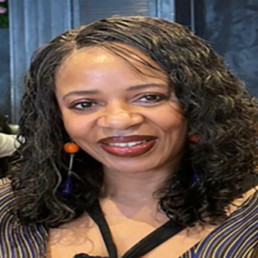
Written by Caroline Anukem
Caroline Anukem is Equity, Diversity and Inclusion Lead at Beaconsfield High School in the UK. She is a driving force, a change-maker, and a relentless advocate for equity.
Forget Acts of Service: The Love Languages Revolutionising Inclusion
Tired of the same old diversity and inclusion (EDI) initiatives that fall flat? It is time to do away with the generic and delve into a framework that speaks to the heart of belonging: Inclusion Love Languages.
Imagine this: You walk into a conference feeling a pit in your stomach. The name tags are impersonal, the panels lack diverse voices, and you struggle to find someone who “gets” your background. This is the opposite of inclusion. Now, picture a different scenario. You are greeted warmly with your preferred pronoun, the agenda reflects a range of perspectives, and breakout sessions offer opportunities for collaboration across differences. This – this – is inclusion in action.
Beyond Tolerance: A Celebration of YOU
Inclusion should not be about simply tolerating differences. It is about actively celebrating them. The “Love Languages” model, popularised by Gary Chapman, categorises how individuals receive and express love. I propose adapting this framework to inclusion, recognising that everyone has preferred ways of feeling valued and respected in a space.
What are YOUR Inclusion Love Languages?
Just like some crave words of affirmation from a partner, others might feel most included through mentorship opportunities or invitations to social gatherings. Think about your own preferences. Do you thrive in environments with clear expectations and open communication (Acts of Service)? Or do you feel most valued when your unique perspective is acknowledged and celebrated (Words of Affirmation)?
Understanding your own inclusion love language is just the first step. Now consider how you can identify and address the preferences of others. Perhaps a colleague or a fellow student feels most included through casual check-ins (Quality Time), while another appreciates being included in focus groups (Gifts – offering opportunities for contribution).
From Feel-Good to Functioning: The Power of Inclusion
True inclusion is not just about creating a warm and fuzzy atmosphere. It creates a sense of psychological safety, where individuals feel comfortable taking risks, sharing ideas freely, and being their authentic selves. This, in turn, unlocks a treasure trove of benefits:
- Innovation Unleashed: Diverse perspectives combined with psychological safety create a breeding ground for ground-breaking ideas.
- Engagement on Fire: Feeling valued motivates people to bring their best selves to work, leading to increased productivity and engagement.
- Collaboration Takes Flight: A sense of belonging improves teamwork and inevitably reduces conflict, thus creating a more positive and collaborative environment.
Speaking Your Inclusion Love Language: Building a Thriving environment
By understanding the “inclusion love languages,” we can move beyond a one-size-fits-all approach. This reframing equips us with practical tools to cultivate a culture of belonging, the foundation for a truly thriving and equitable working or learning environment.
Committing to a queerer future in the university
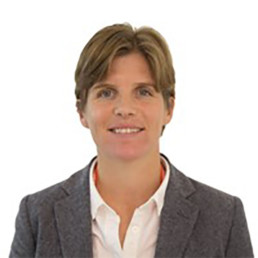
Written by Alex Baird
they/them
Before moving to the Higher Educator sector seven years ago, I worked in various schools for over twelve years, latterly as Director of Sport. At the University of Bedfordshire I am a Senior Lecturer in Sport and Physical Education, an EDI Lead, and the Vice Chair of the LGBTQ+ Alliance staff network. I have just finished an EdD at UCL and the research I write about here constituted my EdD thesis.
In the process of moving from teaching in schools to lecturing in Higher Education (HE) and then embarking on a doctorate, I have been encouraged to read, reflect, and write more. I have gravitated towards my LGBTQ+ lived experiences and perspectives and I find myself increasingly motivated to carry out LGBTQ+ themed research. Being a LGBTQ+ researcher encompasses treading a different and uncertain path. In anticipating a few negative reactions to my research or worse still not being heard at all, I will attempt to speak calmly and clearly in order to bridge a connection and appeal to the shared interests that we might have between us.
LGBTQ+ leadership has often been excluded from UK HE, HE leadership research and wider leadership research, meaning leadership is narrowly understood (Lumby & Moorosi, 2022; Thomson, 2017). The individualistic, fixed, and binary conceptualisations of leadership, also enable and maintain prevailing power structures and inequalities (Ferry, 2017). For this reason, I was excited to hear about a proposed LGBTQ+ leadership development programme within the specific context and current climate of UK HE and further still when I was given access as a researcher to query leadership and leadership development.
The LGBT Leadership Development Programme I attended was delivered within one post-92 university and consisted of three formalised classroom days and individual mentorship. I had not anticipated, since I was not employed at the host university, being a participant as well as observer on programme days. However as soon as I arrived on day one, attendees drew me into the group and session activities. I tried to extend a reciprocal level of openness about my personal and professional experiences while balancing my role of observer, being interested without becoming too active. I learnt to wait a while and let other attendees ask a question before I did. I was invited to attend five further socials and three LGBTQ+ network events which brought me even closer to attendees’ lives. Attendees willingly engaged in interviews and I became aware of how their voices were entangled with other voices, the atmosphere of the programme’s queer space, their perceptions of the wider university, and their loyalty to the programme and its survival.
The energy, lightness, and freedom of the programme’s queer space produced new ways of thinking about, seeing, and enacting leadership. The community of LGBTQ+ attendees who came together (which included both academic and professional staff) facilitated intergenerational queer knowledge sharing amongst LGBTQ+ staff and offers an example of how distributed leadership and discussion works in practice. LGBTQ+ leadership was conceptualised as listening to, valuing, and developing people, and challenging inequalities by voicing an alternative perspective. A form of leadership which is relational, collective, creative, temporal, and offers some resistance to the negative pressures of neoliberalism. Enacting LGBTQ+ leadership was seen as being different (at times) from management rather than the two being interchangeable terms; attendees sheltered their team from or utilised market forces in UK HE to support inclusion and recognised that leadership did not necessarily require an authority role.
I know of three attendees who were promoted during or shortly after attending the programme however this overlooks the longitudinal, curvilinear, and wider outcomes for both attendees (mental wellbeing, career satisfaction, and career direction) and the organisation (development and retention of diverse talent). Instead of assimilating or conforming to normative versions of leadership, LGBTQ+ lives were attached to leadership with growing pride and joy. Crucially, though, the attendees in this queer space reflected upon and redefined the meaning given to authenticity (Fine, 2017), which was viewed by some attendees as beyond an ‘outness’ (recognising the nuances involved in this act), rather knowing oneself (an ongoing process) and embracing this. Whilst Authentic Leadership Theory (Avolio et al., 2004) fails to consider the complexities of relational and contextual factors, the attachment of this concept to the LGBTQ+ leadership development programme offered personal benefits to LGBTQ+ attendees’ wellbeing and leadership potential (Fletcher et al., 2024) and encouraged qualities in their leadership, which have been identified as being essential to UK HE (Spendlove, 2007; Bryman & Lilley, 2009).
The programme and LGBTQ+ mentorship readdressed feelings of powerlessness in the wider university, and nurtured and developed LGBTQ+ staff talent (and the university’s emerging leadership). This included mentors offering support when mentees applied for specific jobs during the programme’s duration and mentors explaining pathways for academic staff (which for some had been previously obstructed); clarifying the university’s systems and structures; and advising mentees to network with colleagues within HE. Attendees gained confidence to walk their own paths and voice alternative viewpoints. Attendees also spoke about the ‘softer’ merits of the programme, for example friendships continuing to blossom. Attendees viewed leadership development as a continual process of learning from and reflecting upon their leadership and life experience. It was also noted that progression was not always available, nor should it be the only aspiration, given the risk and limitation involved.
In sharing these findings to stimulate future versions of LGBTQ+ leadership development programmes I have been asked why a LGBTQ+ leadership development programme should be prioritised over other protected minority groups. I am not suggesting that LGBTQ+ staff have a superior need to others rather that this research indicates there is a value to leadership development programmes which have a specific focus and membership. However a LGBTQ+ leadership development programme would be particularly meaningful at this moment in time, when LGBTQ+ staff and students may be feeling less safe given the backdrop of a ‘culture war’ in the UK and a global ‘moral panic’ surrounding trans people. HE should be at the forefront of leading the way to positive societal change. I hope my research makes a valuable contribution to guiding future LGBTQ+ leadership development programmes and their accompanying research.
References
Avolio, B. J., Gardner, W. L., Walumbwa, F. O., Luthans, F. & May, D. R. (2004) ‘Unlocking the mask: A look at the process by which authentic leaders impact follower attitudes and behaviors.’ The Leadership Quarterly, 15, 801-823.
Bryman, A. & Lilley, S. (2009) ‘Leadership Researchers on Leadership in Higher Education.’ Leadership, 5(3), 331-346.
Ferry, N. C. (2018) ‘It’s a family business!: Leadership tests as technologies of heteronormativity.’ Leadership, 14(6), 603-621.
Fine, L. E. (2017) ‘Gender and Sexual Minorities’ Practice and Embodiment of Authentic Leadership: Challenges and Opportunities.’ Advances in Developing Human Resources, 19(4), 378–392.
Fletcher, L., Pichler, S. & Chandrasekaran, L. (2024) ‘Songs of the self: the importance of authentic leadership and core self-evaluations for LGBT managers.’ Journal of Managerial Psychology, 39(2), 131-145.
Lumby, J. & Moorosi, P. (2022) ‘Leadership for equality in education: 50 years marching forward or marching on the spot?’ Educational Management Administration & Leadership, 50(2), 233-251.
Spendlove, M. (2007) ‘Competencies for Effective Leadership in Higher Education.’ International Journal of Educational Management, 21(5), 407–417.
Thomson, P. (2017) ‘A little more madness in our methods? A snapshot of how the educational leadership, management and administration field conducts research.’ Journal of Educational Administration and History, 49(3), 215-230.
Inclusion Beyond Tolerance.
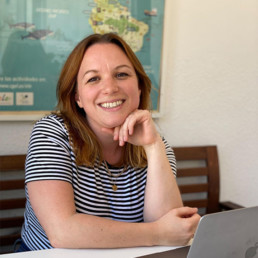
Written by Claire Stancliffe
Claire Stancliffe is an education consultant specialising in gender equity, diversity & inclusion and positive masculinities. She’s on a mission to break down gender stereotypes in schools.
Pride month is well underway, and it’s got me thinking about the thorny issue of tolerance. It’s a word we hear often associated with diversity in general, but very commonly with the LGBTQIA+ community. Tolerance is the idea that we do not need to understand someone to be able to get along with them. That we can all rub along together, to live and let live. Sounds harmless enough right? Yet if I told you I would tolerate your company for the evening, I don’t think you would be thrilled.
When it comes to inclusion, the notion of tolerance falls short. It says, “I don’t mind you breaking the rules”, while all the time upholding and even strengthening social norms. Due to religious differences, the ways we have been socialised and the norms of our various cultures, it will never be possible to create a world where we all see eye to eye on everything, but if we want to encourage true inclusion I think we need to look beyond tolerance, to a more expansive view of what exactly ‘normal’ is.
Breaking gender stereotypes
Up until very recently, our frame of reference for ‘normal’ when it comes to how we raise our children has been cis-heteronormative – that is that everyone’s gender is that which is assigned at birth (or ‘cisgender’), the expectation that all people are or will be heterosexual (or ‘straight’), and that girls behave according to one set of rules, and boys behave according to another. This has led to harmful stereotypes that perpetuate inequality.
It struck me recently that when we encourage young people to see past the narrow confines of gender stereotypes, we are often doing so from a tolerance perspective. By pointing out that it’s possible to break the norm, we can inadvertently reinforce it. It’s ok for girls to be good at maths, but it’s not part of the norm. It’s ok to marry someone of the same gender, for example, but it’s not part of the norm. It’s ok for a boy to wear makeup, but it’s not part of the norm. The terms ‘male nurse’ and ‘lady doctor’ that are still so commonly used come to mind here.
For children, and indeed all people, breaking away from the group and doing something that’s perceived as different can be a stressful position. Many of us avoid taking the risk, preferring to go along with the crowd and feel acceptance, which can severely limit our options for happiness.
Redefining the norm
Breaking gender stereotypes is not just about allowing exceptions; it’s about redefining what the norm can be. This requires creating environments where diversity in gender expression and identity is not just tolerated but celebrated.
Here are three strategies that I think can shift the dial in a positive direction.
- Provide diverse role models whenever possible. Consider where you have the opportunity to showcase different stories – can a maths word problem include a scenario with two mums; a girl playing with toy cars; a boy buying nail varnish? Invite a diverse range of professionals to come and speak to your class that counter common stereotypes, and remember to include men who enter caring professions, for example, as well as women in STEM. The more possibilities children are exposed to, the broader their horizons grow in terms of futures they imagine for themselves.
- Watch your language. Use gender-neutral terms where possible, and certainly for all job roles. Instead of ‘fireman’ use ‘firefighter’, for example, and instead of ‘lollipop lady’, try ‘crossing guard’. When referring to the group, avoid using gender identifiers unless it’s relevant. Instead of ‘boys and girls’, use terms like ‘team’, ‘class’, ‘everyone’. Small changes can make a big difference in how children interpret the world around them and the choices open to them.
- Actively challenge stereotypes. Don’t shy away from discussing stereotypes when they come up, but approach it with curiosity. Try asking ‘what makes you say that?’ and engaging as the young person explains their point of view. Highlight examples from their real lives that go against stereotypes, and encourage them to think about stereotypes that they themselves might defy. This can help them start to question the validity of broad, catch-all statements.
As adults, we can influence the way young people see the world and their place within it. So let’s move past a tolerance mindset, to one that truly celebrates them for who they are, that helps them connect to others they identify with, and that cheers them on as they grow into who they are really meant to be.
Understanding Staff Wellbeing in Academies: A Mid-Year Review

Written by Iona Jackson
Iona leads on turning Edurio’s national datasets into useful and impactful insights for trust and school leaders. Iona has worked on national reports focused on topics such as equality, diversity and inclusion, staff retention and pupil experience and wellbeing. She works closely with education leaders and industry experts to understand what the current position means for the sector, and where to go from here.
In the education sector, the wellbeing of staff is a critical issue that impacts not only the individuals involved but also the quality of education provided to pupils. Recent data from the Edurio 2023/2024 mid-year report of Staff Wellbeing in English Academies sheds light on the diverse experiences of educators and other school staff, highlighting significant variations in wellbeing across different roles and protected characteristics.
Overall Wellbeing Insights
The report reveals that less than 40% of staff feel very or quite well, with over a quarter reporting poor wellbeing. Additionally, while around a third of staff report sleeping well, almost half feel stressed and overworked. Despite these challenges, the majority of staff often feel excited about their work, showcasing a dedication to their roles despite the pressures they face.
Role-Based Wellbeing Differences
Wellbeing varies significantly by role within the school environment. Teachers, for example, report the lowest levels of wellbeing across almost all measures, including sleep quality and stress levels. Leadership roles, while also experiencing high levels of stress and workload, report better overall wellbeing compared to other roles.
Protected Characteristics and Wellbeing
Examining wellbeing through the lens of protected characteristics reveals notable disparities. Age, gender, sexual orientation, ethnicity, disability, and parenthood all influence wellbeing in distinct ways.
Age: Younger staff, particularly those aged 25-34, report the lowest levels of wellbeing, highest stress, and poorest sleep quality. In contrast, older staff, particularly those aged 65-74, report better overall wellbeing and less stress.
Gender: Male respondents generally report higher wellbeing compared to female respondents. However, those identifying with another gender identity, although a small group, report significantly worse wellbeing across all measures.
Sexual Orientation: Heterosexual staff report slightly more positive wellbeing outcomes than their LGB+ counterparts. Stress levels are notably higher among LGB+ staff, reflecting the unique challenges they face in balancing personal and professional identities in often unsupportive environments. As contributors Jo Brassington and Adam Brett from Pride and Progress noted, “The stress that LGBT+ teachers experience speaks to the need for LGBT+ teachers, and teachers from minority backgrounds, to receive mandatory training and support as part of ITE programmes and throughout their careers.”
Ethnicity: The relationship between ethnicity and wellbeing is complex, with no clear trend emerging. However, it is noteworthy that White British staff are the least likely to feel excited by their work. The commentary from Black Men Teach highlights, “While there are variations across ethnic groups, the disparities are not always stark and consistent. This aligns with broader discussions on intersectionality, recognising that individuals may experience unique challenges based on the intersection of various identities, such as race, gender, and socio-economic status.”
Disability: Disabled staff report significantly lower wellbeing across all measures, with issues like poor sleep quality and high stress levels being particularly pronounced. Catrina Lowri from Neuroteachers emphasises that creating a sense of belonging and celebrating disability can have a substantial positive impact on staff wellbeing. “Where schools are trying to improve situations for disabled staff the most successful organisations are those which create a sense of belonging, not only for disabled staff but for those with protected characteristics as a whole.”
Parenthood: Staff who are parents generally report higher overall wellbeing, lower stress, and a greater sense of excitement about their work compared to non-parents. However, they do report slightly lower sleep quality. The reflections from Maternity Teacher Paternity Teacher underscore the importance of understanding the unique experiences of parent-teachers to better support their wellbeing, “More information is needed to understand the experiences of parent-teachers. The age of their children, for example, is likely to play a part in their sense of wellbeing, particularly the impact of their sleep on their stress levels, resilience and ability to cope with their workloads.”
Recommendations for Improving Wellbeing
The report concludes with several recommendations aimed at enhancing staff wellbeing, including taking more intersectional approaches to understand wellbeing disparities more comprehensively, providing cultural competency training, establishing mentorship and support networks for staff from minority backgrounds, advocating for more equitable policies and wellness programs tailored to the unique needs of diverse staff, and fostering partnerships with community organisations to strengthen support for staff.
Hannah Wilson, Director of Diverse Educators, contributes to the conclusion of the report, inviting readers to reflect on their practices:
- Do we know how many trans and non-binary staff that we have in our organisation? How is their MHWB and what can we do to support this group who are very vulnerable in the current climate?
- Do we know how many LGBT+ staff that we have in our organisation? Is there a difference in the MHWB of a gay man to a lesbian woman, and how does this differ if they are also a person of colour or a person of faith?
- Do we know how many disabled staff/ staff with a disability that we have in our organisation? How are different staff disabilities and access/ inclusion needs supported in an intentional and a proactive way?
By recognising and addressing the diverse needs of staff, schools can create a more inclusive and supportive environment that promotes the wellbeing of all educators, ultimately benefiting the entire educational community.
For more information:
The 2024 Staff Wellbeing in Academies report reveals important contrasts in the wellbeing of different groups of staff working in England’s schools and features expert commentary from Black Men Teach, Diverse Educators, Maternity Teacher Paternity Teacher, Neuroteachers, Pride and Progress and Sufian Sadiq.
Edurio is England’s leading provider of staff, pupil, and parent feedback surveys for schools and multi-academy trusts. So far, our school surveys have supported over 750,000 pupils, parents and school staff. Edurio’s platform and nationwide dataset allow trust and school leaders to benchmark their performance against national averages on topics like staff wellbeing, retention and EDI, parental engagement, pupil wellbeing and others. By measuring the often difficult-to-track elements of education quality, Edurio can help school leaders make informed decisions, develop engaging relationships with staff and communicate their values to their community.

